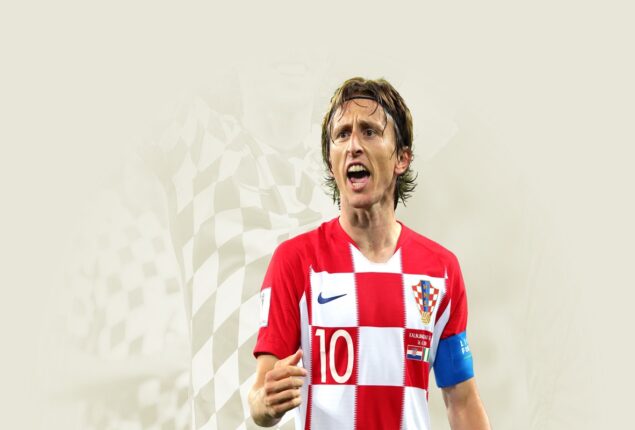South Korea’s defeat sets up Brazil’s quarterfinal matchup with Croatia
Brazil beat South Korea 4-1 in the FIFA World Cup's Round of...

Luka Modric, Croatia’s conductor in his final FIFA World Cup
The five-time champions’ outstanding first-half performance in their 4-1 triumph over South Korea in the round of 16 served as a warning to their fellow title contenders.
The Selecao will likely have a far tougher test against Croatia, the 2018 World Cup champions, since seven of their last eight matches in big event knockout rounds have required extra time.
The team’s lifeblood, Modric, is still on the field, and coach Zlatko Dalic has stated that he anticipates the 37-year-old to participate in the Nations League finals in 2019.
But 20 years after his first World Cup, in the United States, Canada, and Mexico in 2026, the Real Madrid midfielder can not see himself participating in a fifth.
He told FIFA prior to the campaign, “I’m conscious that I’m of a particular age and that this is my last competition with the Croatian national team.
While still giving his all in the middle of the field, Modric was visibly waning when he was taken off after Croatia’s win against Japan on penalties in extra time of the last-16 match.
However, the Balkan nation will be depending on him to dig deep once more as he seeks to recapture the form that propelled Croatia to the Moscow final in 2018, when they fell to France 4-2.
Josip Juranovic, a fullback, remarked, “When you watch somebody like Luka Modric running and dying on the field, it gives us younger players extra motivation to run.”
After a 16-year international career in which he has made 159 appearances, Modric is revered in his native country.
Five Champions League trophies with Real Madrid are in his trophy cabinet.
In 2018, Modric won both the World Cup player of the tournament and the Ballon d’Or, ending the 10-year reign of Lionel Messi and Cristiano Ronaldo.
Between 1991 and 1995, when Croatia was fighting for independence, Modric’s hometown of Zadar and the area around it were extensively shelled by Serb forces.
Those close to Modric claim that those experiences helped to mould his character and gave him mental toughness.
When Modric was younger, his boyhood buddy Marijan Buljat trained and played with him. “It occurred a million times that we were going to training as the shells were falling, and we were racing to shelters,” Buljat recalled.
It’s unquestionably one of the things that motivated him to excel to the best of his ability.
After the Serbs assassinated Modric’s grandpa, after whom Luka was named, the family fled to Zadar, which was 40 kilometres (25 miles) away.
I regret that my grandfather wasn’t able to see at least some of my accomplishments, Modric said to FIFA.
Modric, who was born in 1985, started his footballing journey in Zadar, where he first attracted attention.
Josip Bajlo, who was then the coach at NK Zadar, recalled, “I heard about a small hyperactive boy continually playing with a football in the hallway of a refugee motel, even going to sleep with it.”
Modric moved to Dinamo Zagreb from Zadar when he was a teenager. In 2008, he joined Premier League team Tottenham, where he lasted for four years before relocating to Spain.
In the hinterland of the coastal town of Zadar, trees are already growing inside the roofless ruin of his grandparents’ home.
The house is situated close to a sign that reads, “Mines – Keep out!” on a steep road that winds through the Modrici hamlet.
On Friday, its most famous son will be attempting to make one more push for World Cup victory.
Catch all the Football Worldcup News, Sports News, Breaking News Event and Latest News Updates on The BOL News
Download The BOL News App to get the Daily News Update & Follow us on Google News.